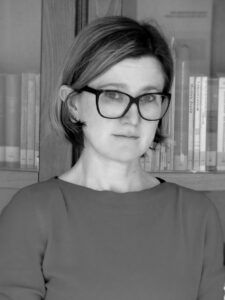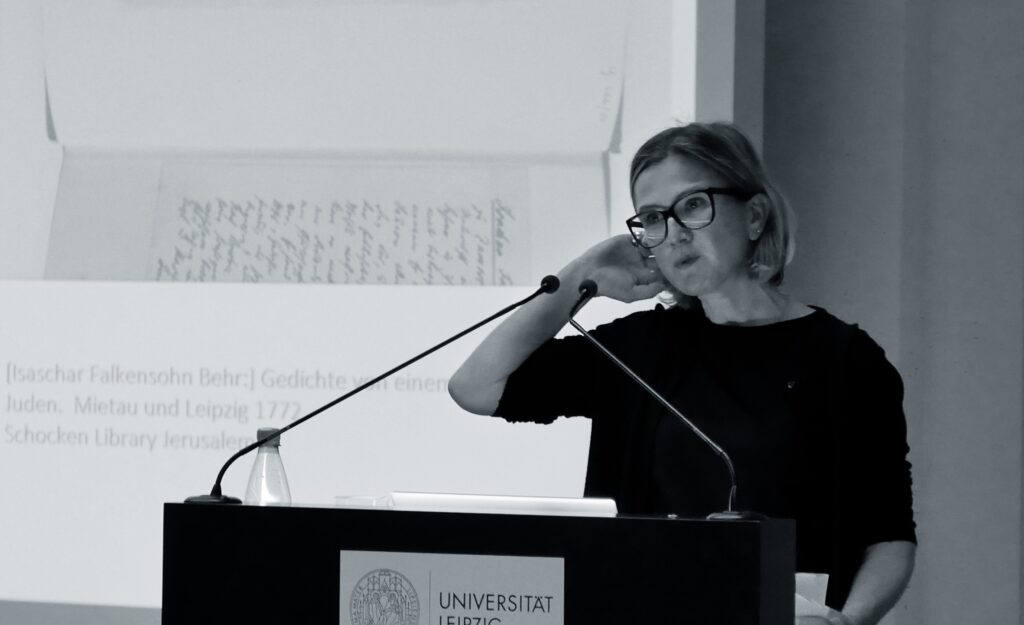Visiting Max Kade Professor Caroline Jessen Joins VU Spring 2025

Caroline Jessen is a scholar of German literature at the Leibniz Institute for Jewish History & Culture – Simon Dubnow in Leipzig. Her research explores historical concepts of cultural property at the interface of literary studies, provenance research, and cultural history. Her current project explores the impact of translocated German literature collections on research in Germany after 1945. In this context, she is interested in Salman Schocken’s autograph collection (Novalis, Heine, Kafka), a topic on which she published several articles, such as: »Von der Unverfügbarkeit der Manuskripte. Die Heine-Sammlung Salman Schockens (1936-1966)« in Geschichte der Philologien 63/64 (2023).
Caroline completed her Ph.D. in German literature at the University of Bonn, with a dissertation titled »Kanon im Exil. Lektüren deutsch-jüdischer Einwanderer in Palästina/Israel« (Wallstein 2019). Between 2012 and 2021 she worked for the German Literature Archive Marbach (DLA). As part of a project of the Marbach Weimar Wolfenbüttel Research Association (MWW), she published »Der Sammler Karl Wolfskehl« (Suhrkamp 2018), a monograph on the trajectories and dispersion of a Jewish Library after 1933.
Together with James Mc Farland, Caroline teaches a course at Vanderbilt University this Spring 2024:
GER 2441 Great German Works in Translation Spring 2025
What are »great works«? Why do they endure over centuries? What is their contemporary relevance? These are some of the questions that will inform our readings of German authors from the Middle Ages to the present. We will explore changing notions of the subject and its relations to community; the foundations of modern society; the relationship of culture and history; and shifting ideas of the nation and national identity. Our focus will be on close readings of texts as well as on the historical and social context. Readings will include works by Grimmelshausen, Goethe, Lenz, Jean Paul, Büchner, Kafka, Amery, Jelinek, Tawada, and Özdamar.

From Berlin to New York: Schocken Books in Search of the Modern Jewish Reader
Exhibit and Workshop at Special Collections and University Archives, April 10, 2025:
In April, Caroline and Markus Krah (Executive Director of the Leo Baeck Institute New York) will discuss the cultural program and publishing politics of the Jewish publishing house »Schocken Books« at a workshop organized by the Max Kade Center in collaboration with the Special Collections at Vanderbilt University. To accompany this discussion, Caroline will present the work of the publishing house in the years 1945–1960 in a small showcase exhibition, based on the Nahum N. Glatzer Collection at Vanderbilt University.